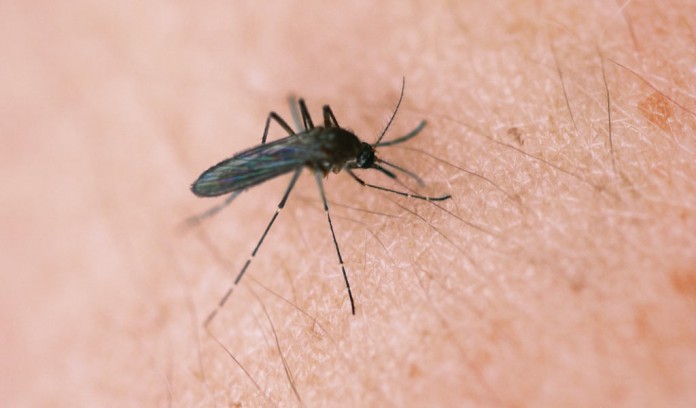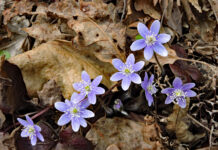Mosquitoes are one of the most common pests people experience during the summer months. The Ohio Department of Health says that while most mosquitoes are just nuisances, several species transmit diseases locally: West Nile Virus, Eastern equine encephalitis (EEEV), La Crosse virus (LACV) and St. Louis encephalitis virus (SLEV).
Travel-acquired diseases are transmitted via mosquitoes, too. Recently, Zika virus has been in the news headlines as cases have been detected in South, Central and North America.
Related:
Zika virus: Ohio State expert available to speak about disease-carrying mosquitoes
With the scare of the Zika Virus this year, in addition to West Nile Virus worries, you’re likely looking for ways to both reduce the number of mosquitoes on your property as well as ways to deter them from hanging around exposed skin, especially during the summer months. Aside from burning Citronella candles, there are other strategies you can employ.
Here are some plants you can include in your landscape to keep mosquitoes away, as well as some tips for choosing mosquito repellent for your family.
Which plants repel mosquitoes?
North Carolina State University Extension says that the following herbs may help to reduce the number of mosquitoes on your property:
- Basil
- Lemongrass
- Rosemary
- Garlic
- Citronella plant/grass (inedible)
- Catnip
Colorado State University Extension recommends placing the scented geranium Pelargonium citrosum Vanieenii, which contains Citronella oil, by windows and outside doors to keep mosquitoes away.
Choosing and using a mosquito repellent
According to North Carolina State University Extension, mosquitoes are most attracted to women and children; people who consume a lot of sweet foods and drinks; and the colors blue and yellow.
The Ohio Department of Health cautions that long sleeves, long pants and socks should be worn when outside, especially between dusk and dawn when mosquitoes are most active.
Mosquito repellents will not kill mosquitoes, but they do keep mosquitoes away from parts of the body that have been sprayed with the repellent. Here are some things to keep in mind when choosing a mosquito repellent for you and your family, adapted from the Ohio Department of Health and the Centers for Disease Control and Prevention:
- Only choose repellents that are approved by the EPA.
- Choose repellents that contain DEET, picaridin, and IR3535. Also consider using repellents that contain lemon eucalyptus oil and para-menthane-diol, which give longer protection.
- Don’t apply repellents that contain permethrin to skin. Products containing permethrin are recommended for clothing, shoes, camping gear and bed nets only, not for skin.
- Read labels carefully. Refer to application recommendations as well as what types of insects the repellents can be successfully used for. When you notice you’re getting bit, reapply.
- Apply to exposed skin and clothing, but don’t apply repellents to skin under clothing. Don’t overdo it; heavy application doesn’t better guard you against mosquitoes.
- To apply repellent to your face, spray on hands first and apply to your face. Avoid contact with eyes and mouth, and use sparingly around ears.
- Apply repellent to children for them. Do not allow children to apply it themselves.
- Once you’ve returned inside, bathe or at least wash the repellent off with water and soap.
How to treat mosquito bites
When you’re bit by a mosquito, Colorado State University Extension explains that you should wash the insect bites. Use a small amount of tea tree oil (or a tea tree oil-based soap) to dab on the bite, then wash the bite with witch hazel. Dab lemon juice or cider vinegar next, then rub lavender oil or cinnamon oil on the bite.
Other tips to keep your home mosquito-free
Mosquitoes breed in standing water. Mosquito eggs hatch when they are in water, so reduce or eliminate the amount of standing water around your property. The following advice is adapted from the Ohio Department of Health.
- Change water in birdbaths and baby pools 1-2 times weekly.
- Place tight-fitting covers over any containers that hold standing water, like barrels, tubs, cisterns and septic tanks.
- Check and clean out gutters periodically to clear out stagnant water.
- Get rid of any water-holding objects: old tires, buckets, jars, toys, etc.
To prevent mosquitoes from getting inside your home, consider the following:
- Make sure all screens on doors and windows are fitted properly. Screens should be made with 14×14 or 14×18 mesh.
- Make sure screen doors open out, not in, and make sure they shut automatically. Repair doors that don’t shut automatically.















Adding a Mozzie scarf wouldn’t hurt either. These super lightweight summer scarves have a built in bug screen for your face and neck. They work great for keeping mosquitoes from landing (and biting)!